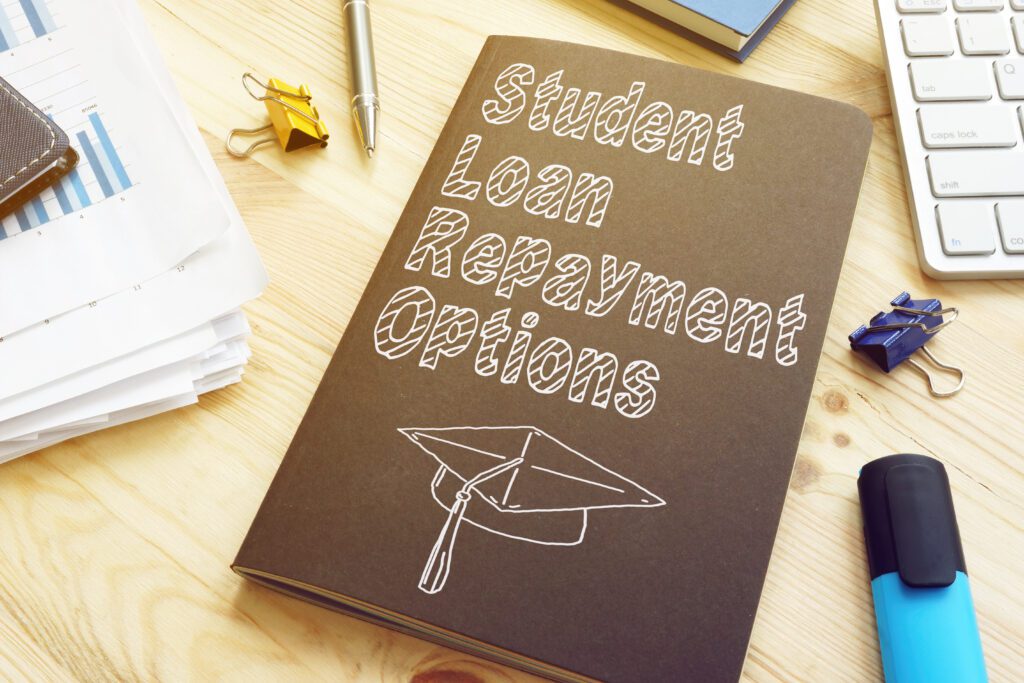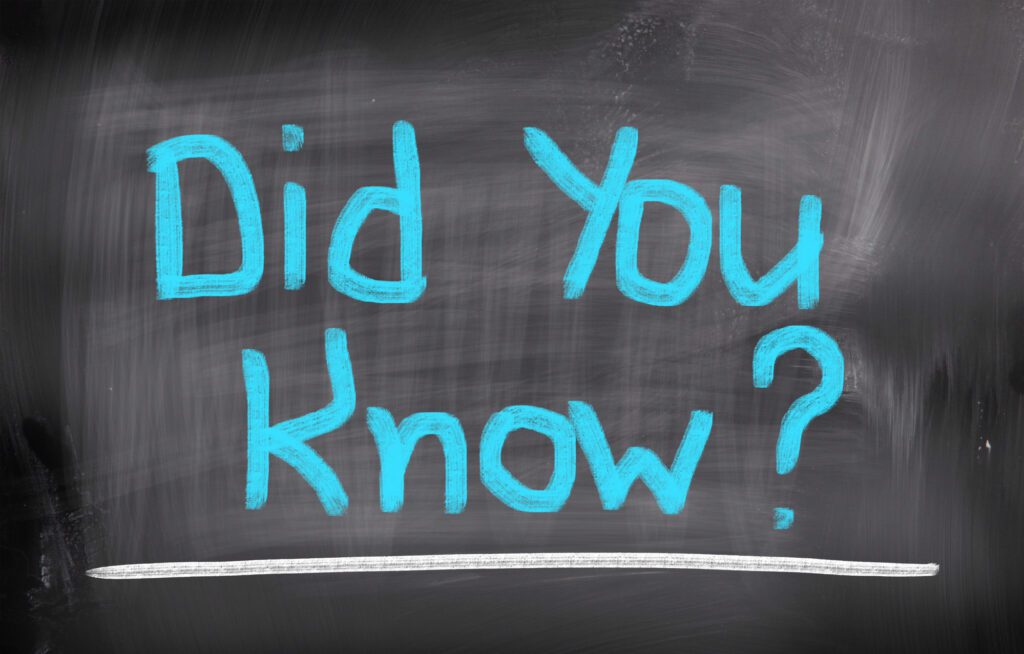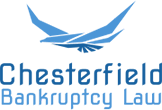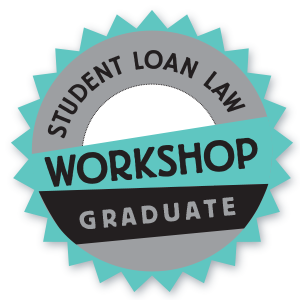HELP FOR
STUDENT LOAN DEBT
Not Getting Student Loan Forgiveness Yet?
Take Control of Your Federal Student Loan Debt
Are you struggling with student loan debt now that “the Pause” is over? If so, you’re not alone!
Millions of American student loan borrowers make the payments automatically assigned by the servicer. Then, have nothing left for the down payment on a mortgage or a car. Don’t put yourself through that stress.
Many federal student loan repayment plans include working toward student loan forgiveness, but the servicers might not have told you about them. We have specialized training that allows us to analyze your student loan debt and show you which alternatives can help you the most.
Tap the Student Loan Law Workshop Graduate seal to learn more about the advantages of having a Student Loan Law Professional on your side. Scroll down to learn about Federal Student Loan repayment plans, consolidation, and what to do if you are in default (rehabilitation).
Do I Have to Repay Federal Student Loan Debt?
Your first student loan payment was due six months from when you left school – whether you dropped the program or graduated.
If you didn’t talk with your student loan servicer at least 45 days before the first payment was due, you are on the default repayment plan. This repayment plan takes the sum of your student loans and interest, then divides it into 120 installments (10 years). For example, if your loans total $35,000, payments will be about $292.00 a month, depending on interest rates.
If you have medical bills or other significant debt, are unemployed or underemployed, this payment amount may not be realistic.

What Type of Student Loan Qualifies for Student Loan Forgiveness?
If you have Federal Direct Loans, they can be forgiven through PSLF. If you have other federal student loans, you can still get forgiveness, you just need to consolidate them first. Loans such as Federal Family Education Loans (FFEL) or Perkins Loans may be consolidated into a new federal Direct Consolidation Loan.
Federal Student Loan Repayment Options
MANAGE YOUR STUDENT LOAN DEBT
What could you do if your student loan payments weren’t an issue? Save for a car, or pay your monthly bills in full? Plan a vacation? We can get you moved to one of the repayment plans that could lower the amount you have to pay each month, giving you some much needed breathing room. Student loan repayment options include:
- Extended Repayment Plan
- Graduated Repayment Plan
- Income-Based Repayment Plan (IBR)
- Income-Contingent Repayment Plan (ICR)
- Income-Sensitive Repayment Plan
- Pay as You Earn Repayment Plan (PAYE)
- Revised Pay as You Earn Repayment Plan (REPAYE)
Each plan has pros and cons. Many include student loan forgiveness, wiping out any debt that’s left after the repayment period ends. The one that’s right for you depends on your situation and goals. Contact us today and take back control of your finances.

- You might qualify for repayment assistance programs based on your career, such as teachers, nurses, doctors, lawyers and members of the military.
- Bankruptcy can wipe out student loan debt in some circumstances.
- IDR plans include student loan forgiveness at the end of the repayment period.
Student Loan Debt Options: Consolidate vs. Rehabilitate
Student loan consolidation and student loan rehabilitation are two different options available to borrowers who are struggling to repay their Federal Student Loan Debt. Depending on your loan status, you may benefit from one or both options.
CONSOLIDATE FEDERAL STUDENT LOANS
Student loan consolidation involves combining multiple federal student loans into a single new loan. It simplifies the repayment process by consolidating the loans into one monthly payment. The new consolidated loan often comes with a new interest rate, repayment term, and monthly payment amount. This can help you manage your debt more efficiently and potentially lower monthly payments by extending the repayment term.
Consolidation allows you to consolidate various federal loans, such as Direct Subsidized Loans, Direct Unsubsidized Loans, and Federal Perkins Loans. However, private student loans are not eligible for consolidation through this program.
Are Your Student Loans in Default?
REHABILITATE FEDERAL STUDENT LOANS
Student loan rehabilitation is a process designed for borrowers who have defaulted on their federal student loans. Default occurs if you fail to make payments for a specified period, usually 270 days. When a loan is in default, it can have severe consequences.
STUDENT LOANS IN DEFAULT CAN RESULT IN
- A negative hit to your credit score
- Wage Garnishment
- Tax Refund Offset (the government could take your tax refund)
- Legal Action by the loan holder (e.g., lawsuit)
To rehabilitate a defaulted federal student loan, you must typically make a series of nine consecutive, on-time, reasonable, and affordable monthly payments. The payment amount is determined based on income and family size. Once the rehabilitation process is complete, the loan is considered out of default, and you regain eligibility for benefits such as deferment, forbearance, and access to income-driven repayment plans.
Rehabilitation is only available for federal student loans, not private student loans. It’s important to note that the default status and any late payments will still remain on the borrower’s credit history, but the negative impact is typically diminished over time as they demonstrate consistent repayment.
Contact A Student Loan Lawyer in Chesterfield, VA
Both consolidation and rehabilitation can offer relief if you have difficulties with your student loan repayments. The choice between the two options depends on your specific circumstances, goals, and the type of loans you have. It’s advisable to seek personalized guidance regarding your student loans from an experienced, knowledgeable Student Loan Professional.
Contact us today using the form or call 804-706-1355 to learn more about the Student Loan Debt review and analysis process. Ask about repayment plans that end with student loan forgiveness.
NEED A STUDENT LOAN LAWYER IN CHESTERFIELD, VIRGINIA?
CONTACT US TODAY!
The attorneys at Chesterfield Bankruptcy Law can help you determine which student loan repayment plan works best for your budget.
Bankruptcy is a last resort. There may be alternatives that can help you deal with the financial burden. Call us at 804-706-1355 for more information and to find out if bankruptcy is the best option for you.

